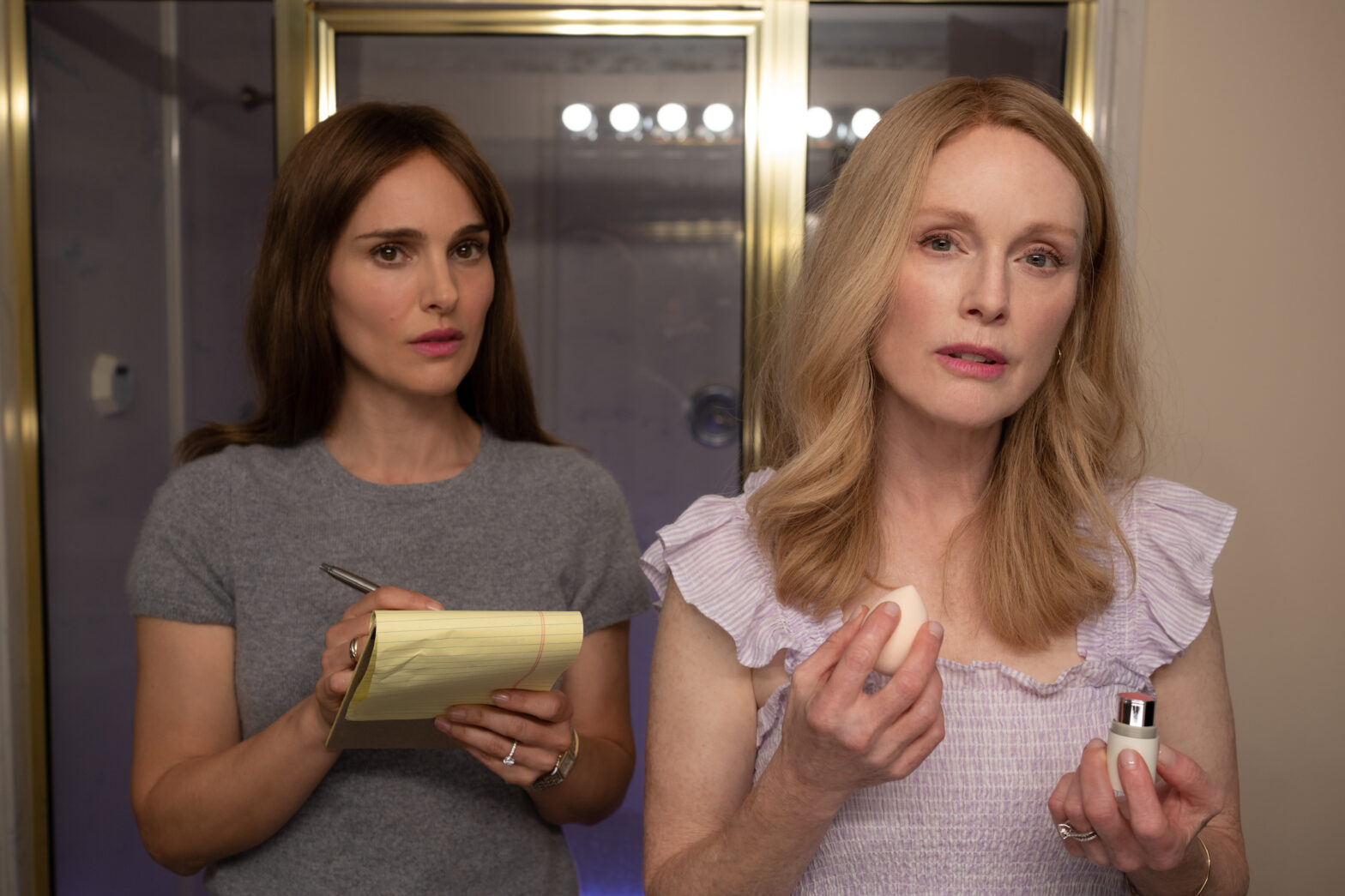The New School Free Press’ Alexiah Syrai Olsen attends the press screenings for The New York Film Festival.
When a rainstorm flooded the city on Sept. 29, hundreds of people lined up to see the press release of “May December” directed by Todd Haynes, and I was first in line, arriving at the festival three and a half hours early.
“May December” was a big release for Haynes. As it came across his desk, he knew he had to join Samy Burch’s first ever feature film. Best known for her casting work in the “Hunger Games” adaptations, this film will definitely put her on the map.
Burch found inspiration for the contentious screenplay in the Mary Kay Letourneau case from the late 90s, in which Letournaeu, a 34-year-old woman, started a sexual relationship with a 12- year-old boy. The film’s cast consisted of Natalie Portman as Elizabeth, Julianne Moore as Gracie, and Charles Melton as Joe. Elizabeth is an actress shadowing Gracie. Twenty years ago, Gracie gained notoriety as the plaintiff in a child rape case when she, a 36-year-old, began dating Joe, an underage boy. Elizabeth is set to star in a film about Gracie and Joe’s relationship as Elizabeth is playing the role of Gracie. “May December” explores the abstruse dynamic between the two women.
Many films tackle relationships with inappropriate age gaps, but Burch’s screenplay gives the viewers perspectives from three very different people: an uncomfortable actress, an awkward wife, and a scared groom. The theme of an adult falling for a child has been done over and over again in movies like “Lolita” and shows like “A Teacher.” However, the ties Burch creates between all three characters is a tricky dynamic to manage, especially if you are new to screenwriting.
Even the name of the film, “May December,” is used to emphasize the age gap. May symbolizes growth and the return of summer, characterized by Joe: a man edging towards the peak of his life. Then December is Gracie: an older woman trapped in dull gray hair and wrinkles — closer to death. December is known for its winters where vegetation dies off and the snow makes the world look muted. And in all the months in between, there’s a disconnect between two people who are at complete opposite stages of their lives.
Going into the film, there were concerns about how Burch would balance three strong personalities while driving the story forward. She shows off her talent for developing characters in her portrayal of the relationship between Elizabeth, Gracie, and Joe. The film introduces all three parts interacting with each other, but it’s not until the characters spend one-on-one time with one another, that we actually see the story unfold. Burch uses this tactic to make space for intimate monologues that feel secretive and hidden from the public. These illicit scenes give viewers an inside scoop on the characters’ psyches.
Adding a third connection between the actress Elizabeth and Joe was unexpected yet proved to be crucial. In these interactions between the outsider and the victim, the audience is able to learn from Joe’s perspective — seeing that there’s more than Gracie’s version of the decades-long relationship. But Joe also divulges tips about Gracie as well, key information that Elizabeth wouldn’t have found out otherwise. Burch compels us to indulge in the drama. Viewers are integrated into the lives of the characters as she uses double entendres: dialogue that appears as tension but has a deeper meaning of the real emotions of the characters. The writing makes us guess how each person is feeling, requiring viewers to pay attention to every piece of dialogue. It’s a smart way to ask us to meditate upon characters, thinking beyond what is given to us visually.
Burch even goes so far as to add hints of comedy throughout the intense awkward scenes. It adds insight into analyzing characters, allowing Burch to assert dominance over the tone. It’s a way of toying with the audience; we get so uncomfortable with a scene we sink into our seats, then a satirical line releases us back to peace. We are on guard during the film, not knowing what to expect until she tells us. It gives a “simon says” approach, “Burch says to be distressed, Burch says to laugh.” She is mocking us and the only thing we can do is laugh at how clever her writing is. She does this to govern her audience, giving us a reason to yearn for the next scene. Burch incorporates so many different emotions in her writing that she gets us so hooked on the ride, pawning up total control of our heartbeats.
First time writers typically fail to develop complex characters while keeping the audience engaged. They aren’t able to control the emotions of characters while also giving them enough depth not to lose the audience — but Burch manages to do this without fail. Character development either lacks terribly or screenwriters hand it to us, which is boring. Burch had the option to hesitate as this is her first feature film, but as the story progressed, she proved her worth and made sure that we would never doubt her ability again. Her approach is a style that seems new and unpopular in the screenwriting world.
Burch’s work in screenplays is something she needs to continue for the sake of the film community.
“May December” will hit theaters on Nov. 17.







